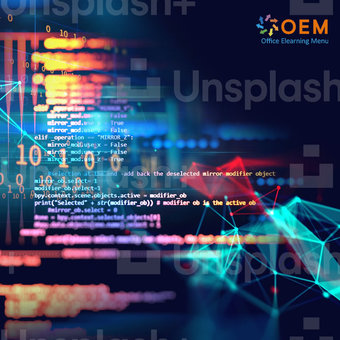Top 10 CloudOps Programming Languages for 2023

Programming languages are used to create computer applications. To achieve better results, it is crucial for CloudOps to use data-oriented programming languages and technologies rather than generic ones. CloudOps Programming languages are essential for executing cloud operations, including a variety of networking, security, performance, device management, help desk and other tasks that maintain cloud-native apps and underlying infrastructure.
The notification is sent and CloudOps can even take the necessary actions to block the IP address. These tasks and corrective actions can be automated by cloud operations so that the end user does not experience problems when using cloud applications and data.
Top 10 CloudOps programming languages for developers to learn in 2023:
- JavaScript: For most enterprises, programmatic provisioning of cloud-based infrastructure requires access keys or SSH connections. Consuming cloud-based resources is an excellent fit for client-side JavaScript. Automation and resource provisioning require a server-side language.
Check out our JavaScript training >> - Node.js: Allows companies to combine client- and server-side cloud functions under one roof. Moreover, Node.js and its support for JavaScript make it a suitable choice for companies looking for one language that can be used for different purposes.
- Python: Python allows programmers to create scripts that quickly deliver infrastructure using vendor SDKs. SDK upgrades for Python are prioritized as new cloud platform capabilities are released thanks to SDKs provided by major cloud vendors.
Check out our Python training courses >> - C language: The ability to invoke IaaS and PaaS APIs is only one aspect of using C in the cloud needs, even though all major cloud vendors offer full SDK support for the language. The technical infrastructure supporting the cloud is largely created in C.
Check out our C language training courses >> - Go: You can use Go to provision infrastructure and automate cloud-related administrative chores, because all major cloud vendors provide a Go SDK to communicate with their IaaS APIs.
Check out our Go training >> - Java: Many companies currently employ a pool of talented Java developers. You don't need to require your employees to learn a new language to use Google Cloud or AWS APIs in your automation scripts or continuous delivery pipelines because both major cloud vendors offer Java SDKs.
Check out our Java training courses >> - .NET: It is a middle-tier framework that is tested and has connectors for any kind of back-end resource. Therefore, it is a great option for creating microservices and RESTful APIs that connect different parts of an organization's architecture.
- Ruby: For beginners, it is a great computer language for cloud networking. It offers significant advantages because it is such a huge ecosystem. Understanding Ruby opens up countless opportunities in cloud technology because it offers so many tools for creating different apps and has more than 60,000 library functions to choose from.
Check out our Ruby training >> - PHP: It is the ideal language for anyone who wants to work in the cloud because it is easy to learn and manipulate. Many programmers love PHP because it facilitates the development of apps with dynamic functions.
Check out our PHP training >> - ASP.NET: Allows programmers to build applications that work on all cloud computing platforms. Moreover, this language produces contemporary, fast and scalable applications.
Check out our ASP.NET training courses >>
These are the top 10 CloudOps programming languages for developers to learn in 2023. Since CloudOps programming can take many different forms, back-end developers can interpret it as creating a cloud-native application or implementing continuous delivery for a collection of connected microservices. It may involve creating an Angular or React application that uses web developer resources hosted in the cloud.
Which programming language will you learn in 2023?

